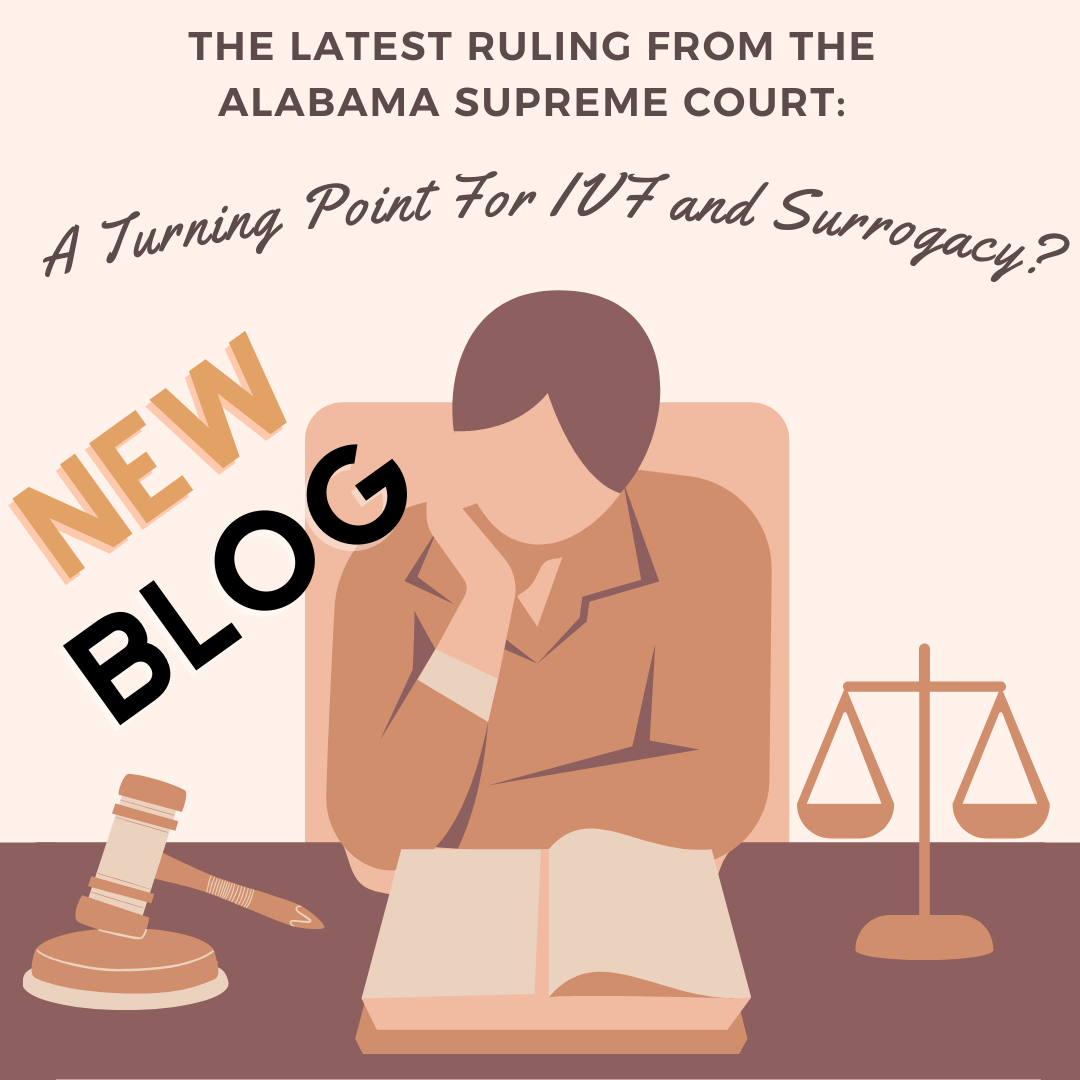The Latest Ruling from Alabama Supreme Court: A Turning Point for IVF and Surrogacy?
In a landmark decision that is sending ripples through the world of reproductive technology, the Alabama Supreme Court has recently made a ruling that could have far-reaching implications for In Vitro Fertilization (IVF) treatments (and by extension, surrogacy) within the state - and beyond. As advocates and mentors in the surrogacy community, it's crucial we unpack this ruling, understand its nuances, and consider how it might influence the landscape of surrogacy and fertility treatments moving forward.
TAKE THE SURROGACY QUIZ CHAT WITH A SURROGATE
The heart of the Alabama Supreme Court's decision lies in its interpretation of the legal standing of embryos created via IVF procedures. Without diving too deep into legal jargon, the ruling essentially examines the rights associated with these embryos, impacting how they can be legally regarded in the context of custody disputes, surrogacy agreements, and fertility treatments.
This decision marks a pivotal moment, reflecting an evolving judicial perspective on reproductive technology and its intersection with family law. The nuances of this ruling are complex, but the implications are clear: there is a shift towards recognizing the legal implications of IVF-created embryos in family disputes and agreements.
TAKE THE SURROGACY QUIZ CHAT WITH A SURROGATE
Potential Impacts on Fertility Treatments and Surrogacy
The implications of this ruling for IVF and surrogacy are multi-faceted and worth considering for anyone involved in or considering these paths to parenthood:
1. Surrogacy Agreements
For surrogacy agreements in Alabama, this ruling could necessitate more detailed legal frameworks. It highlights the importance of clear, comprehensive contracts that address the status of IVF-created embryos, ensuring that all parties have a mutual understanding and agreement on sensitive issues that could arise during the surrogacy journey.
2. Legal Challenges
The decision may open the door for increased legal scrutiny and potential challenges in surrogacy and IVF treatments. This could mean more rigorous legal processes and potentially longer timelines for those seeking these fertility solutions, emphasizing the need for specialized legal advice and support.
TAKE THE SURROGACY QUIZ CHAT WITH A SURROGATE
3. Policy and Practice Changes
Fertility clinics and legal professionals specializing in reproductive technology might need to adjust their policies and practices to align with the new legal landscape. This could involve revising consent forms, updating surrogacy agreements, and enhancing legal counseling services for clients.
4. Awareness and Education
There's a heightened need for awareness and education around the legal aspects of IVF and surrogacy. Prospective parents, surrogates, and anyone involved in the fertility journey must be well-informed about their rights, responsibilities, and the potential legal ramifications of the fertility process.
Moving Forward: Navigating the New Landscape
As we navigate this new legal landscape, it's essential for individuals and couples considering IVF or surrogacy to seek guidance and support from experienced professionals. This includes legal experts who specialize in reproductive technology, as well as fertility clinics and surrogacy agencies that are abreast of the latest legal developments and their implications.
TAKE THE SURROGACY QUIZ CHAT WITH A SURROGATE
Final Thoughts
The Alabama Supreme Court's ruling underscores the complex interplay between law, technology, and the deeply personal journey of creating a family. As we continue to monitor the fallout and implications of this decision, our commitment remains unwavering: to support, educate, and guide our community through the evolving landscape of surrogacy and fertility treatments.
DISCLAIMER: The information provided in this blog post and on this website does not, and is not intended to, constitute legal advice; instead, all information, content, and materials available on this site are for general informational purposes only. Information on this website may not constitute the most up-to-date legal or other information. Readers of this post and website should contact their attorney to obtain advice with respect to any particular legal matter.

